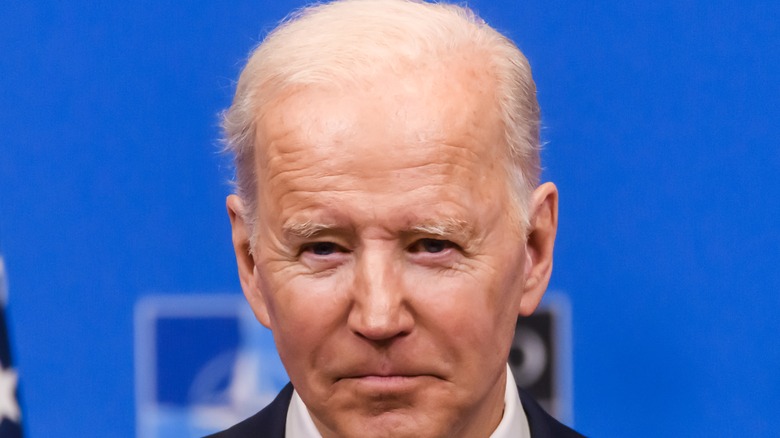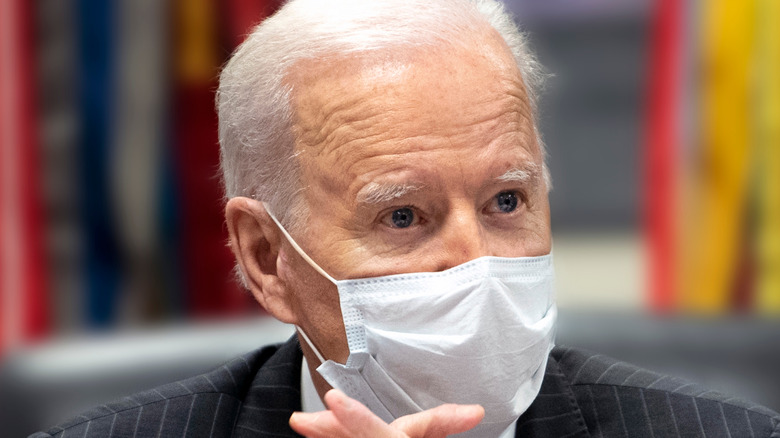What The White House Wants You To Make Of President Biden's COVID Diagnosis
President Joe Biden tested positive for COVID-19 on Thursday, and the White House is trying to keep it business as usual, turning his diagnosis into what is being referred to as a "teachable moment." According to the Associated Press, Biden's symptoms are fairly mild, which is most likely because he is both vaccinated and boosted. He is already taking the anti-viral drug Paxlovid to help reduce the severity of the disease. In addition, White House officials announced that while the president will be isolating until he tests negative, he will continue working throughout the duration of his illness and will be meeting with people virtually instead of in person.
The White House even released a photo and video of Biden working at his desk, wearing an Oxford shirt and blazer, in which he assures the American people that he's "getting a lot of work done." This is part of his administration's efforts to shift the narrative away from his diagnosis and project an image of perseverance to show the public that it is possible to get COVID-19 and recover from the virus without experiencing severe illness, per the Associated Press.
COVID-19 symptoms may worsen after one week
According to NBC News, Biden is currently experiencing a dry cough, runny nose, and fatigue, all of which are mild symptoms of COVID-19, but it could take up to a week before it is clear just exactly how mild or severe his illness will be. As a matter of fact, it's not uncommon for some people's symptoms to worsen around five-to-seven days after infection. Biden's age is also another factor to take into consideration. Since he is 79 years old, he is automatically at a higher risk of severe illness and hospitalization.
However, this doesn't necessarily mean that he won't make a full and speedy recovery. According to Arturo Casadevall, a professor of medicine at the Johns Hopkins School of Medicine, Biden is in relatively good health, has already been vaccinated and boosted, and is currently being treated with antiviral therapy. "All of us expect a good outcome," Casadevall told NBC News.


